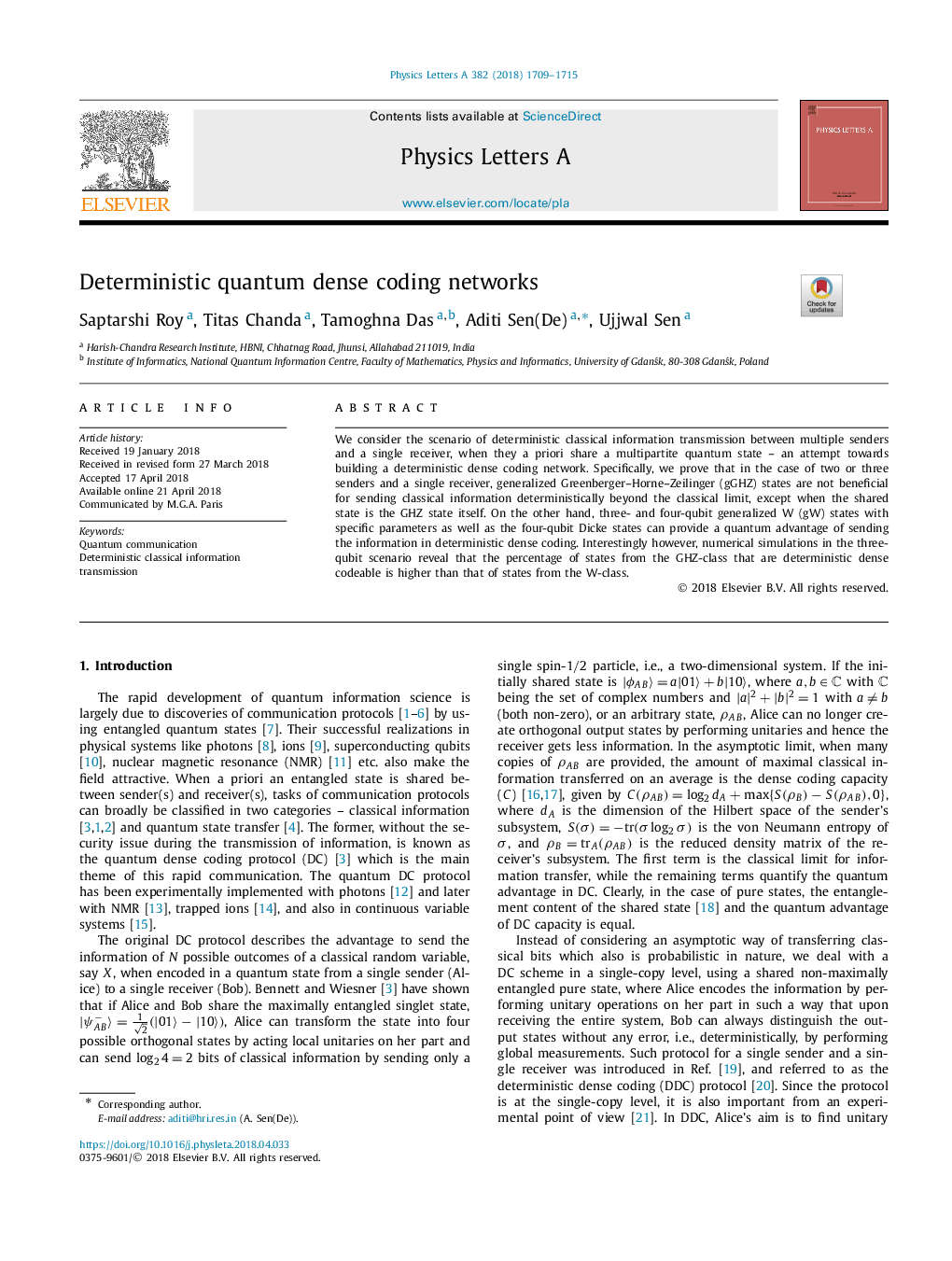| Article ID | Journal | Published Year | Pages | File Type |
|---|---|---|---|---|
| 8203310 | Physics Letters A | 2018 | 7 Pages |
Abstract
We consider the scenario of deterministic classical information transmission between multiple senders and a single receiver, when they a priori share a multipartite quantum state - an attempt towards building a deterministic dense coding network. Specifically, we prove that in the case of two or three senders and a single receiver, generalized Greenberger-Horne-Zeilinger (gGHZ) states are not beneficial for sending classical information deterministically beyond the classical limit, except when the shared state is the GHZ state itself. On the other hand, three- and four-qubit generalized W (gW) states with specific parameters as well as the four-qubit Dicke states can provide a quantum advantage of sending the information in deterministic dense coding. Interestingly however, numerical simulations in the three-qubit scenario reveal that the percentage of states from the GHZ-class that are deterministic dense codeable is higher than that of states from the W-class.
Keywords
Related Topics
Physical Sciences and Engineering
Physics and Astronomy
Physics and Astronomy (General)
Authors
Saptarshi Roy, Titas Chanda, Tamoghna Das, Aditi Sen(De), Ujjwal Sen,
